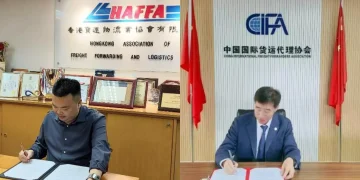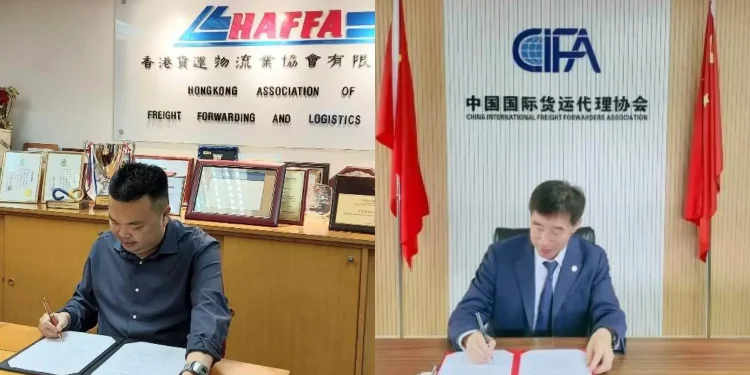By Maria Kalamatas | July 30, 2025
Hong Kong, July 30 — Cross-border cargo traffic between Hong Kong and Guangdong is pushing logistics networks to their limits, leading two major freight associations to renew a pact aimed at smoothing flows. The Hong Kong Association of Freight Forwarding and Logistics (HAFFA) and the China International Freight Forwarders Association (CIFA) have signed an updated memorandum to help forwarders handle mounting volumes and new regulatory hurdles.
“Right now, many mid-sized operators can’t keep up with the paperwork and shifting rules,” said Emily Chan, HAFFA’s chairperson. “Delays at checkpoints aren’t just a nuisance — they disrupt full supply chains and drive up costs for exporters.”
Rising volumes squeeze infrastructure
Exports of electronics, pharmaceuticals, and consumer goods have surged through Hong Kong in recent months, fueled by demand from Europe and North America and the expansion of cross-border e-commerce. This spike has stretched terminal capacity and congested overland routes, where wait times for customs processing have climbed steadily.
“Speed is critical for time-sensitive cargo, and the current bottlenecks threaten delivery windows,” Chan added.
Joint training and digital tools
Under the renewed agreement, HAFFA and CIFA will organize a year-long series of workshops covering digital documentation, sustainable freight solutions, and peak-season strategies. These sessions will give smaller forwarders access to practices normally reserved for larger players with more resources.
Both associations are also developing a shared online platform to handle customs paperwork and pre-clearance. Trials are expected to start later this year, with the goal of making border transitions more predictable.
Avoiding a peak-season crunch
With the year-end shipping rush approaching, industry advisors warn that without new systems, delays at Hong Kong’s border points could cascade into wider disruptions for regional exporters.
“Every hour counts in this corridor,” said Raymond Leung, a logistics consultant based in Shenzhen. “These initiatives could make the difference between controlled flows and severe gridlock by the fourth quarter.”





















